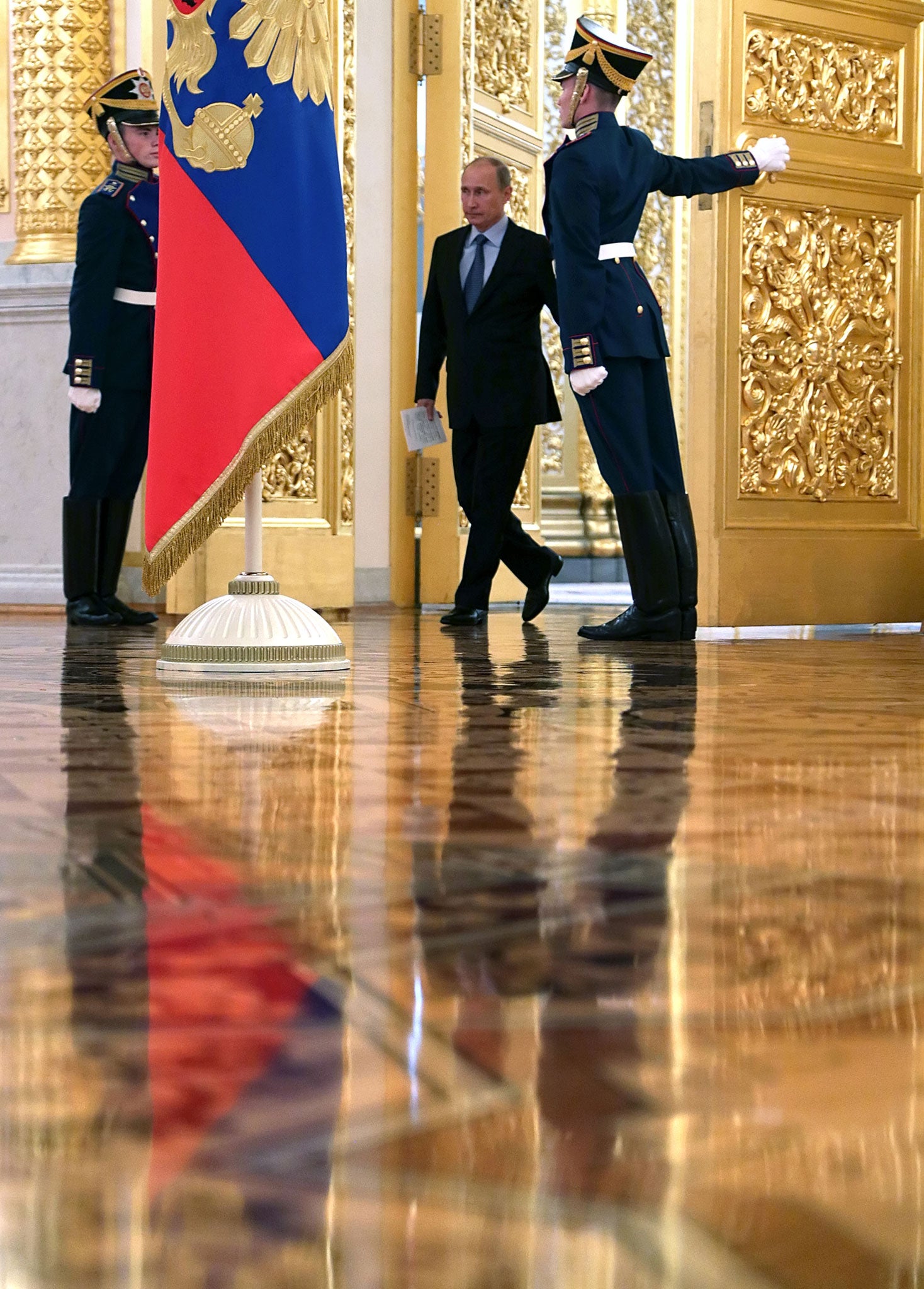Red Fortress, By Catherine Merridale: Book review
The corridors of Russian power are studied through the history of the Kremlin

Your support helps us to tell the story
From reproductive rights to climate change to Big Tech, The Independent is on the ground when the story is developing. Whether it's investigating the financials of Elon Musk's pro-Trump PAC or producing our latest documentary, 'The A Word', which shines a light on the American women fighting for reproductive rights, we know how important it is to parse out the facts from the messaging.
At such a critical moment in US history, we need reporters on the ground. Your donation allows us to keep sending journalists to speak to both sides of the story.
The Independent is trusted by Americans across the entire political spectrum. And unlike many other quality news outlets, we choose not to lock Americans out of our reporting and analysis with paywalls. We believe quality journalism should be available to everyone, paid for by those who can afford it.
Your support makes all the difference.As a junior reporter in Moscow, I dreaded going to the Kremlin. It sounded glamorous, but involved waiting hours for whatever scripted meeting Vladimir Putin would have that day. I could take in no belongings, no computer, no phone, so all I could do was sit, sit, sit. And I did not like it, not one little bit.
I sincerely wish that, on at least one of the occasions I was doomed to await Putin’s pleasure, I could have read Catherine Merridale’s excellent biography of this triangular fortress in central Moscow. Instead of the sterile hours of frustration, I would have understood how old the practise of obliging visitors to wait is; how it is the crudest of power plays. I would have laughed at Putin, rather than grown angry, because his efforts to over-awe us puny visitors were so feeble compared to the glorious theatrics of his predecessors.
Take Ivan the Terrible. When a group of English mariners looking for a back door to India bumped into northern Russia in 1553, they were summoned to Moscow, and made to wait for 12 days. When the time finally came to go to the Kremlin, they were woken early and then made to wait some more. They had to pass through a hall thronged with courtiers, and only then confronted Ivan, a golden crown above a stern face, in a blaze of candles, seated on a golden throne, holding a golden sceptre, clad in gold and surrounded by counsellors also clad in gold. “So great a Majestie of Emperour and of the place might well have amazed our men, and have dasht them out of contenance,” the mariner wrote, in an early example of English understatement.
Even Soviet leaders made their visitors walk down lengthy corridors in the noxious fug of Russian central heating, so they arrived bleary and out of sorts. As the symbolic heart of the largest country on earth, the Kremlin was long overdue a biography, and Merridale proves a very able biographer indeed. In one of many delightful parallels, she calls the Kremlin “Russia’s wailing wall”, and her Kremlin has all the glory and misery of its counterpart in Jerusalem.
She places the Kremlin in the heart of Russia’s history, describing the intrigues that revolved around what was at first just an obscure palisade at the junction of the rivers Yauza and Moskva, whose lords glared enviously at their more prosperous kin in Kiev and Vladimir. Their moment came thanks to the Mongols, who conquered Russia and needed tax collectors. The Muscovites were happy to oblige, and learned their overlords’ lessons well. In fact, Merridale argues, in one of many asides that will displease Russian nationalists but delighted me, Russia is basically a successor state to Genghis Khan’s empire.
The Kremlin’s chaotic Middle Ages feature enough blood to satisfy fans of A Game of Thrones, and the writing is fresh, with regular parallels made between then and now. She compares Polish troops looting the Kremlin in 1612 with today’s mobsters hiding their money in Switzerland.
The middle section drags a little, although that is the fault of Peter the Great, who moved his capital to the shores of the Baltic. Without the court, the Kremlin was reduced to irregular appearances in Russia’s destiny, and the book becomes a standard-ish historical survey with tsars and archaeologists only occasionally popping by to disturb the red fortress’s slumber.
Fortunately, the Soviets moved the capital back to the banks of the Moskva, and the story comes alive again. The vices and habits of the Kremlin’s ancient occupants had so permeated its bricks that its new rational communist inhabitants took just weeks to establish rigid hierarchies of rank and rewards, and just years to start killing one another.
Not everyone can poke through the attics and cellars of the Kremlin, as Merridale has done. But this enjoyable and superbly crafted book is far more than just a travel companion to be read when you walk the long Russian corridors. It helps place Putin and his country in a rich and varied setting, and I look forward to re-reading it next time a Russian official is late for a meeting.
Oliver Bullough’s most recent book is ‘The Last Man in Russia’
Join our commenting forum
Join thought-provoking conversations, follow other Independent readers and see their replies
Comments